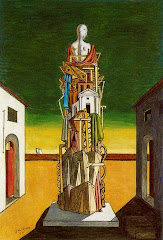Uma viagem no Barroco - 18 Jan Dismas Zelenka - Da Vivo Tronco Aperto (1679-1745)
Jan Dismas Zelenka, Da Vivo Tronco Aperto
 Most of Zelenka's compositions were sacred works, including three oratorios, 21 masses, and numerous other pieces of music. Zelenka's orchestral and vocal pieces are often virtuosic and difficult to perform. In particular, his writing for bass instruments is far more demanding than that of other composers of his era, notably the "utopian" (as Heinz Holliger describes them) demands of the oboe scores in his trio sonatas.
Most of Zelenka's compositions were sacred works, including three oratorios, 21 masses, and numerous other pieces of music. Zelenka's orchestral and vocal pieces are often virtuosic and difficult to perform. In particular, his writing for bass instruments is far more demanding than that of other composers of his era, notably the "utopian" (as Heinz Holliger describes them) demands of the oboe scores in his trio sonatas.It is no secret that J.S. Bach held Zelenka in high esteem, as witnessed by a letter from Bach's son C.P.E. Bach to J.N. Forkel, of 13 January 1775, perhaps accounting for Bach's own striving to produce a full-length Catholic mass (the B minor/H-moll mass) in his final years.
It was mistakenly assumed that many of Zelenka's autograph scores were destroyed during the fire-bombing of Dresden in February 1945. However, the scores were not in the Catholic cathedral, but were in a library north of the river. Some are certainly missing, but this probably happened gradually - and these represent only a small proportion of his extant works.
The "Zelenka movement," which started in the 1960s, is gaining momentum, as witnessed by a number of recent live performances of his works in far-flung parts of Europe such as Copenhagen and Glasgow. One must consider that the now-lionized Bach only attained his current esteem in the twentieth century, thanks to the efforts of 19th-century composers, including Mendelssohn and Mahler; Jan Dismas Zelenka appears to be another "sleeping giant" of the Baroque era.
More than half of Zelenka's works have now been recorded, mostly in the Czech Republic and Germany, and it is only a matter of time before all 21 masses will have been recorded. The Missa Purificationis (ZWV 16) is the latest to appear (on Nibiru Records; see below). Some would say that this mass reflects Zelenka at his peak, as at the time (1733) he was very much in the limelight at the Dresden court. (This is the last mass to include brass instruments). Others would say that Zelenka's compositional peak corresponds to his final masses from 1739-1744 (ZWV 19-21) [Wikipedia].
Aria sung by altus MAGDALENA KOZENA; orchestra: CAPELLA REGIA MUSICALIS conducted by ROBERT HUGO.

Sem comentários:
Enviar um comentário